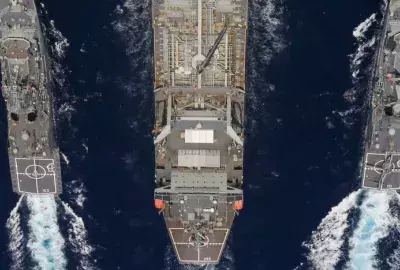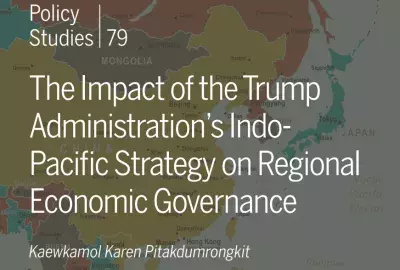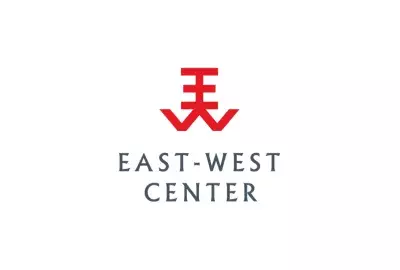Error message
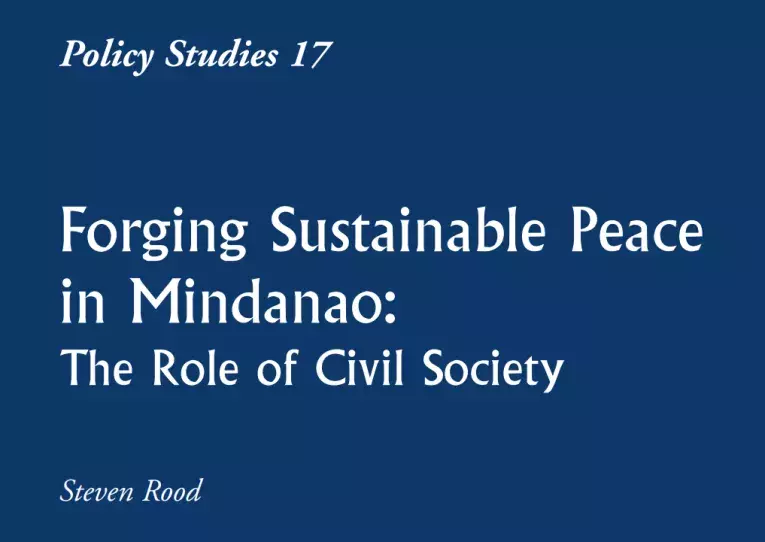
This study investigates the role of civil society in forging sustainable peace in Mindanao. It argues that civil society groups have the potential to make significant contributions to the management of the separatist conflict in the southern Philippines and in forging durable peace. Due to the inherent weakness of civil society groups, however, as well as other local and national conditions, their impact has been indirect, limited, and of little consequence to the macropolitical process. Nevertheless, the role of civil society in peacebuilding is important and should be developed. To this end, the study offers several recommendations to strengthen civil society, especially Muslim civil society, and deepen its interaction with the public at large (especially the Christian population) as well as local and national governments—all with a view to enhancing the key role that civil society groups can play in bringing about a lasting peace in Mindanao. There is an active peace movement in Mindanao that reflects the general strength of civil society in the Philippines as a whole as well as special efforts made to manage Mindanao conflicts over the years. Beginning in the 1970s under the dictatorship of Ferdinand Marcos and continuing to the present day, both Christian and Muslim groups have attempted to build avenues to manage hostilities. This study construes “civil society” to include a wide range of organizations—from development NGOs to church-based groups and business associations. All of these organizational types are in one way or another involved in efforts to manage the conflict in the southern Philippines. They not only network in various ways among themselves and with organizations in the capital, Manila, but have international linkages. This study describes this welter of entities and relationships. It also points out that Muslim civil society is, for a number of reasons, less developed than its Christian counterpart, leading to some imbalance in peace efforts. Other characteristics of civil society include ideological divisions among the groups, the transitory nature of networks, and the fact that they are overwhelmingly intracommunal, i.e. based either exclusively among Christians or among Muslims. Further, Christian groups active in the peace movement are not representative of the citizenry at large, which supports aggressive moves to achieve “victory” over Muslim insurgents. In this context, the study argues that civil society in Mindanao can contribute significantly in terms of managing the conflict and ultimately achieving lasting peace in Mindanao. A number of specific peace efforts are described here. Interreligious dialogue was started in the 1970s but accelerated in the 1990s. There is an asymmetry in the dialogue, however, given that Christianity is more organized than Islam and Christians have more distrust to overcome. Even more serious is the limited reach of such efforts at dialogue, even within the Catholic clergy. A second set of peace activities involves civil society helping local communities establish “spaces for peace” where combatants are requested to stay out of a particular locality. Known by several names, these local efforts are motivated by communities who wish to avoid the effects of further conflict. But spaces for peace are limited, too, inasmuch as various parties to conflict do not respect the provisions established by the communities. Finally, civil society has been involved directly in the peace process over the years. Civil society groups helped the new Arroyo government move toward peace in consultations leading up the August 2001 cessation of hostilities with the MILF, for instance. And they helped roll back the level of conflict by agitating for a restoration of the cease-fire in July 2003 after the Arroyo administration’s assault on the MILF’s Buliok complex. Civil society is officially represented on the Local Monitoring Teams established under the Cessation of Hostilities and also has its own parallel cease-fire monitoring process in Bantay Cease-fire (Cease-fire Watch). The latter has been praised by both government and the MILF for providing impartial public analysis of accusations of violations of the terms of the Cessation of Hostilities. Still, peace has not come to Mindanao and formal peace talks remain suspended. This is not surprising: civil society’s role is inevitably secondary to firm government and insurgent commitments to peace. In addition to specific weaknesses, the inherent difficulty of transcending specific interests to embrace a larger political agenda means that civil society’s impact on macropolitical processes is limited. Instead, civil society’s peace agitation tends to have indirect effects. Civil society can air discussion of the root causes of conflict; it can argue in the media and with policy elites against pursuing “victory” and in favor of developmental changes; and it can provide political space for government officials to maneuver toward a settlement. In short, the nature of civil society affects its impact on conflict management; the involvement of civil society can improve the chances for a lasting peace; but there are inherent limits to the impact that NGOs can have on peace—limitations that can only be overcome by state action. Despite these limitations and weaknesses, local and international civil society organizations can help bring about lasting peace in the region. To this end, the study makes several recommendations:
| Additional titles in the Policy Studies series |
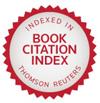
This study investigates the role of civil society in forging sustainable peace in Mindanao. It argues that civil society groups have the potential to make significant contributions to the management of the separatist conflict in the southern Philippines and in forging durable peace. Due to the inherent weakness of civil society groups, however, as well as other local and national conditions, their impact has been indirect, limited, and of little consequence to the macropolitical process. Nevertheless, the role of civil society in peacebuilding is important and should be developed. To this end, the study offers several recommendations to strengthen civil society, especially Muslim civil society, and deepen its interaction with the public at large (especially the Christian population) as well as local and national governments—all with a view to enhancing the key role that civil society groups can play in bringing about a lasting peace in Mindanao. There is an active peace movement in Mindanao that reflects the general strength of civil society in the Philippines as a whole as well as special efforts made to manage Mindanao conflicts over the years. Beginning in the 1970s under the dictatorship of Ferdinand Marcos and continuing to the present day, both Christian and Muslim groups have attempted to build avenues to manage hostilities. This study construes “civil society” to include a wide range of organizations—from development NGOs to church-based groups and business associations. All of these organizational types are in one way or another involved in efforts to manage the conflict in the southern Philippines. They not only network in various ways among themselves and with organizations in the capital, Manila, but have international linkages. This study describes this welter of entities and relationships. It also points out that Muslim civil society is, for a number of reasons, less developed than its Christian counterpart, leading to some imbalance in peace efforts. Other characteristics of civil society include ideological divisions among the groups, the transitory nature of networks, and the fact that they are overwhelmingly intracommunal, i.e. based either exclusively among Christians or among Muslims. Further, Christian groups active in the peace movement are not representative of the citizenry at large, which supports aggressive moves to achieve “victory” over Muslim insurgents. In this context, the study argues that civil society in Mindanao can contribute significantly in terms of managing the conflict and ultimately achieving lasting peace in Mindanao. A number of specific peace efforts are described here. Interreligious dialogue was started in the 1970s but accelerated in the 1990s. There is an asymmetry in the dialogue, however, given that Christianity is more organized than Islam and Christians have more distrust to overcome. Even more serious is the limited reach of such efforts at dialogue, even within the Catholic clergy. A second set of peace activities involves civil society helping local communities establish “spaces for peace” where combatants are requested to stay out of a particular locality. Known by several names, these local efforts are motivated by communities who wish to avoid the effects of further conflict. But spaces for peace are limited, too, inasmuch as various parties to conflict do not respect the provisions established by the communities. Finally, civil society has been involved directly in the peace process over the years. Civil society groups helped the new Arroyo government move toward peace in consultations leading up the August 2001 cessation of hostilities with the MILF, for instance. And they helped roll back the level of conflict by agitating for a restoration of the cease-fire in July 2003 after the Arroyo administration’s assault on the MILF’s Buliok complex. Civil society is officially represented on the Local Monitoring Teams established under the Cessation of Hostilities and also has its own parallel cease-fire monitoring process in Bantay Cease-fire (Cease-fire Watch). The latter has been praised by both government and the MILF for providing impartial public analysis of accusations of violations of the terms of the Cessation of Hostilities. Still, peace has not come to Mindanao and formal peace talks remain suspended. This is not surprising: civil society’s role is inevitably secondary to firm government and insurgent commitments to peace. In addition to specific weaknesses, the inherent difficulty of transcending specific interests to embrace a larger political agenda means that civil society’s impact on macropolitical processes is limited. Instead, civil society’s peace agitation tends to have indirect effects. Civil society can air discussion of the root causes of conflict; it can argue in the media and with policy elites against pursuing “victory” and in favor of developmental changes; and it can provide political space for government officials to maneuver toward a settlement. In short, the nature of civil society affects its impact on conflict management; the involvement of civil society can improve the chances for a lasting peace; but there are inherent limits to the impact that NGOs can have on peace—limitations that can only be overcome by state action. Despite these limitations and weaknesses, local and international civil society organizations can help bring about lasting peace in the region. To this end, the study makes several recommendations:
| Additional titles in the Policy Studies series |






